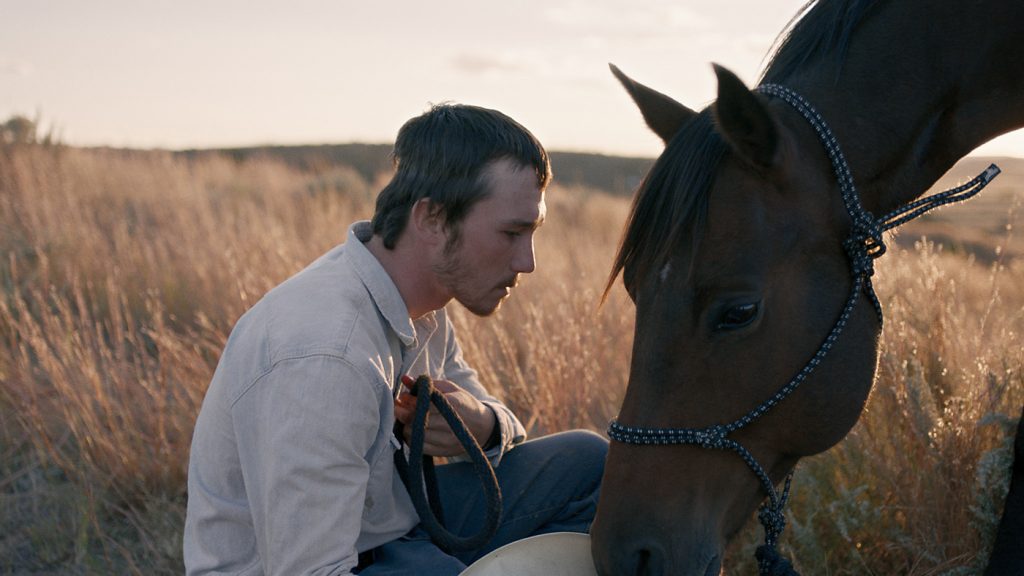
While 2018 was generally a disastrous year for global democracy, the idea of truth, and the survival of the planet, it was a great year for movies—perhaps the best since 2007 (There Will Be Blood, No Country for Old Men, etc.).
A plethora of dazzling, thorny, and moving films made this 21st century dystopia a little more bearable.
#10. The Death of Stalin
Armando Iannucci, the brilliant satirist behind Veep, In the Loop, and The Thick of It, directs this masterpiece, a riotous chronicle of the death of Josef Stalin and the ensuing cutthroat jockeying to fill the power vacuum. Its scabrous, relentless dialogue contains the best one-liners of the year.
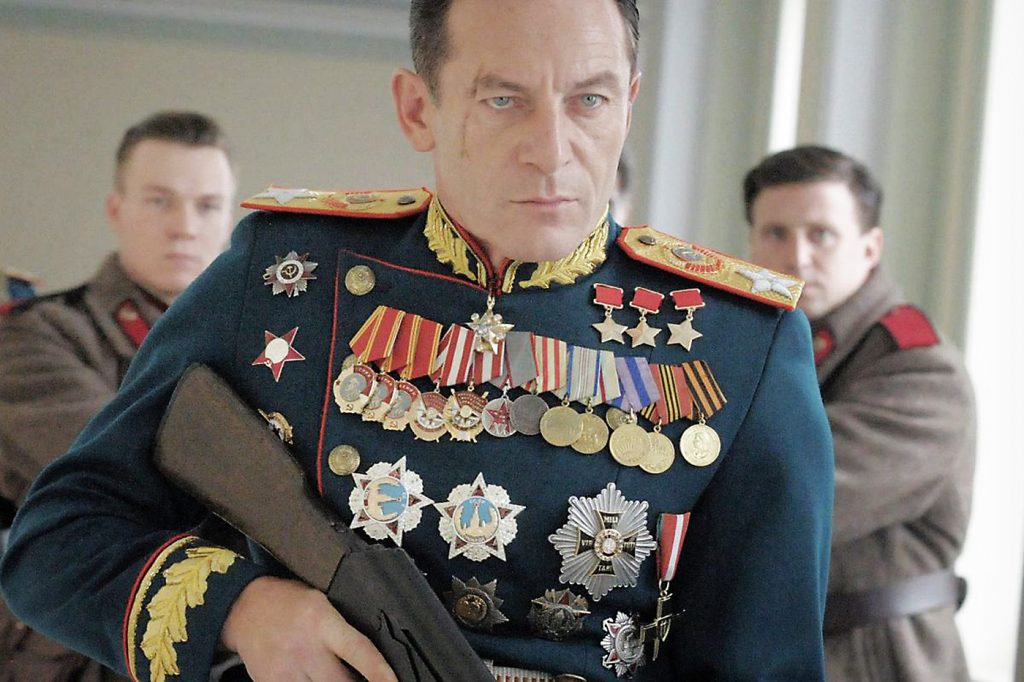
All the performances are electric—including those by Steve Buscemi as Khrushchev, Rupert Friend as Stalin’s drunken-idiot failson Vasily, and Jason Isaacs as the extremely alpha general Zhukov. But it is Simon Russell Beale as Lavrentiy Beria, one of the most venal figures in history, who steals the show. Beale achieves a feat of monstrous charisma, making a figure of grotesquerie seem perversely charming.
#9. Hereditary
Ari Aster’s debut feature is basically a midnight movie romp in Satanism clothed in austere art horror, but boy, does it commit. Toni Collette’s fearless performance of grief and rage provides the ballast for a perverse film that revels in pain. Despite a last act that veers into hysteria and absurdity, Hereditary is an instant classic in the horror genre, steeped in tragedy and marked by several genuinely shocking and terrifying moments.
#8. Mandy
Panos Cosmatos’s delirious, psychedelic horror-revenge movie is unapologetically absurd and yet deeply moving. Nicolas Cage, in one of his great gonzo performances (joining Bad Lieutenant: Port of Call New Orleans, Vampire’s Kiss, Moonstruck, and more), plays a recovering alcoholic logger in the Shadow Mountains of Oregon who has been saved by his unusual girlfriend Mandy (played beautifully by Andrea Riseborough). After a Satanist cult burns her alive, Cage, consumed with rage, forges an axe and seeks revenge against a panoply of horrific villains, including drug-addled bikers from hell. With a surging score by the late, great Jóhann Jóhannsson and electric imagery that includes animation, Mandy is the most visceral, gripping film experience of the year.
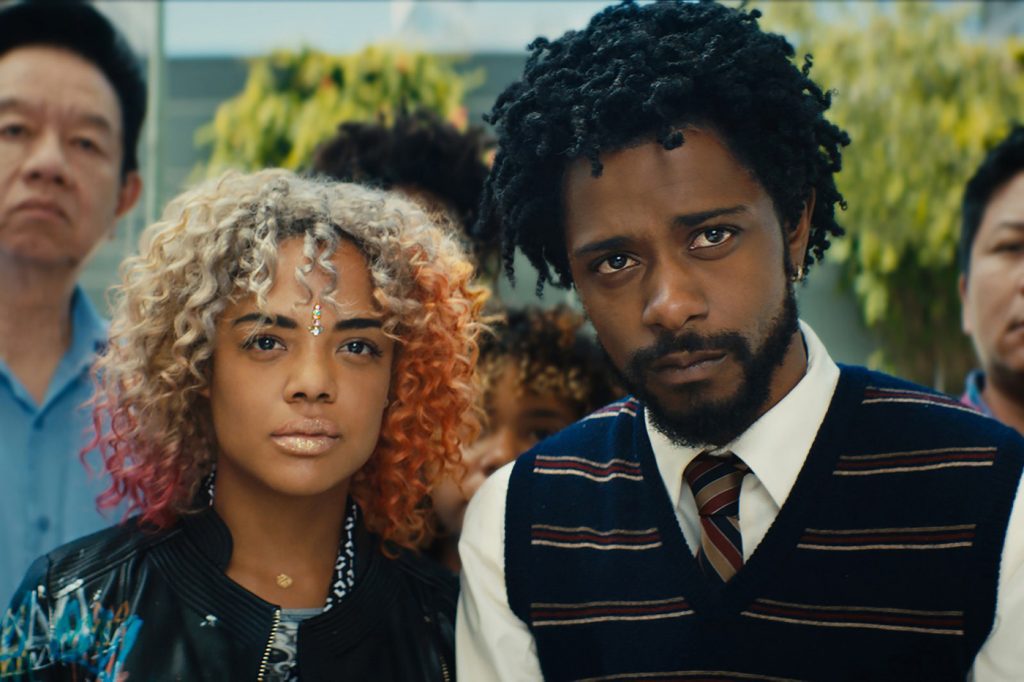
#7. Sorry to Bother You
This incendiary social satire by Boots Riley (a longtime activist and founding member of rap group the Coup) works both as a surreal comedy and a call to action. Lakeith Stanfield, Tessa Thompson, Stephen Yeun, Danny Glover, and Armie Hammer are all charismatic, understanding both the silliness of the premise and the urgency of its politics. The twist in the second act is one of the great reveals of recent years.
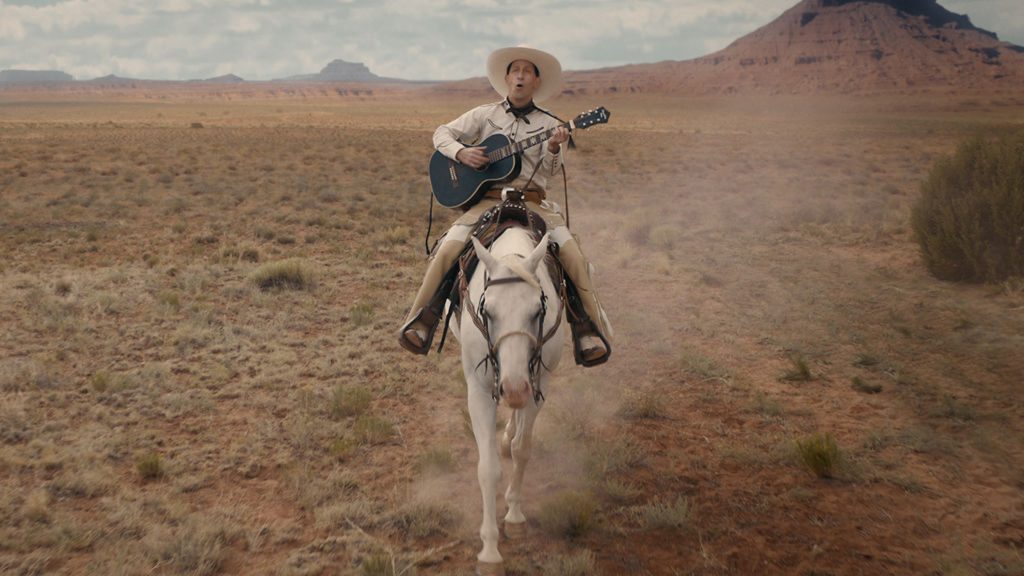
#6. The Ballad of Buster Scruggs
The Coen brothers continue their incredible run with The Ballad of Buster Scruggs. After a couple of missteps (Intolerable Cruelty, The Ladykillers), they rebounded with a second-act run that rivals their initial brilliance.
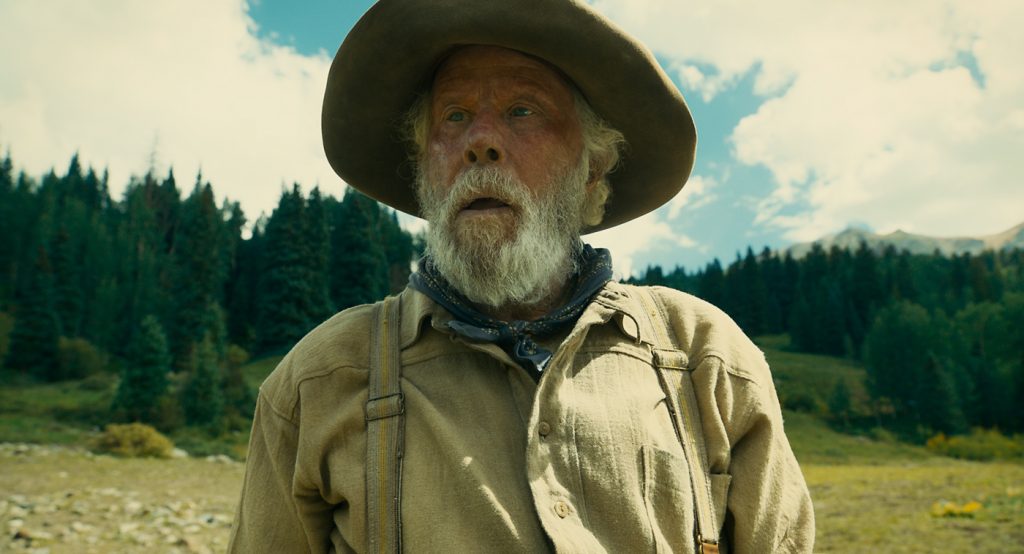
An anthology of six stories, The Ballad of Buster Scruggs has all the tenets of a Coen classic: beauty, black humor, a sneaking sincerity, and rigorous philosophical ruminations on death, violence, and existence. All of the stories shine, in particular a beautiful segment with Tom Waits as a grizzled gold miner, and a wagon-trail romance that ends in cutting tragedy.
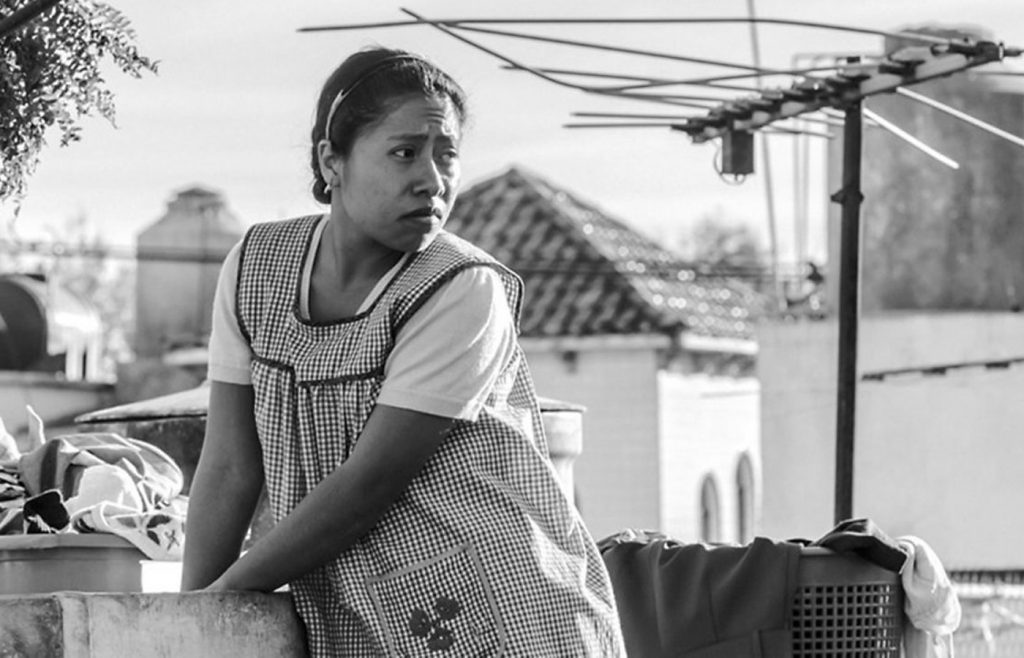
#5. Roma
Alfonso Cuaron’s beautifully felt, deeply autobiographical film is a dream of memory akin to Fellini’s Amarcord. It honors the women in his life—his mother, his grandmother, and especially his nanny.
Following the vicissitudes of a middle-upper class family in the Roma neighborhood of Mexico City, Cuaron brilliantly weaves historical and political threads into a personal story. Right-wing paramilitary clashes with the government happen suddenly in the midst of shopping for a baby crib; a forest fire erupts during a New Year’s Eve celebration.
Shot in crystalline black and white and with no score, Roma is the work of a historical master.
#4. Border
The wildest, most shocking film I saw this year is such a surprising experience that I am hesitant to reveal even the most basic details of the plot. Suffice it to say that this is a modern-day fairy tale, treated with utmost seriousness, wonder, and an earthy sense of the body. Beautifully shot and edited, with cutting humor and a thriller’s pacing, Border will blow your mind.
#3. You Were Never Really Here
Lynne Ramsay has only made four movies in 20 years, but she is one of the most brilliant visual artists of the last 25 years. You Were Never Really Here is a tone poem disguised as a vigilante thriller. Joaquin Phoenix, in an awe-inspiring physical performance, is a fixer haunted by severe PTSD and trauma who beats wealthy pedophiles with a hammer. A brilliant score by Johnny Greenwood and a startling dénouement make the film endlessly fascinating.
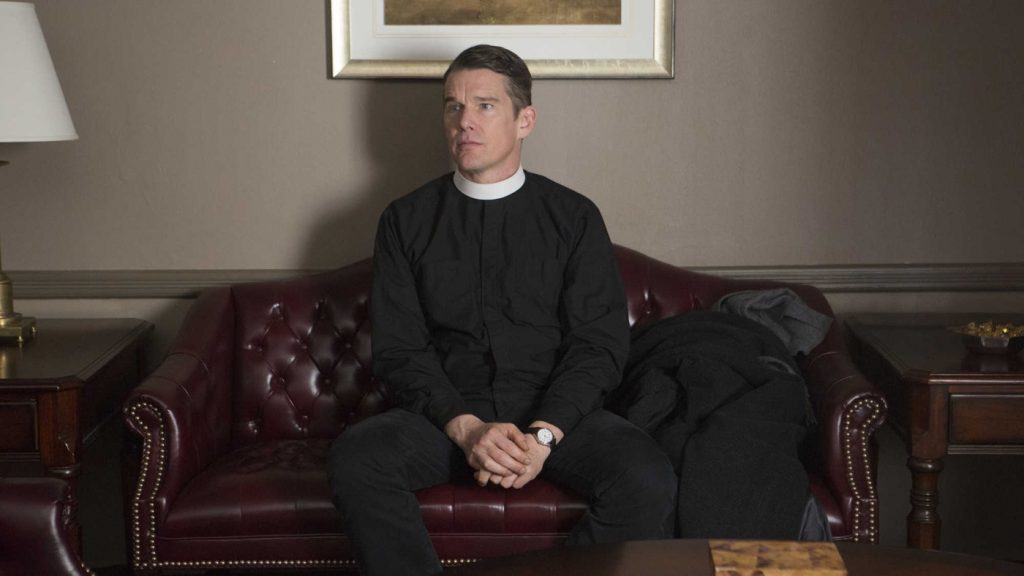
#2. First Reformed
Paul Schrader’s devastating exercise in the transcendental style (square frame, no music, minimal cuts, etc.) is simultaneously a story of the redemption of human connection and the anguish of oncoming environmental apocalypse.
Ethan Hawke has never been better as an exhausted minister whose encounter with an environmental radical sends him into a moral tailspin. The last scene of the film joins the finales of other transcendental greats such as Ordett and Silent Light as an unshakeable bolt of thunder.
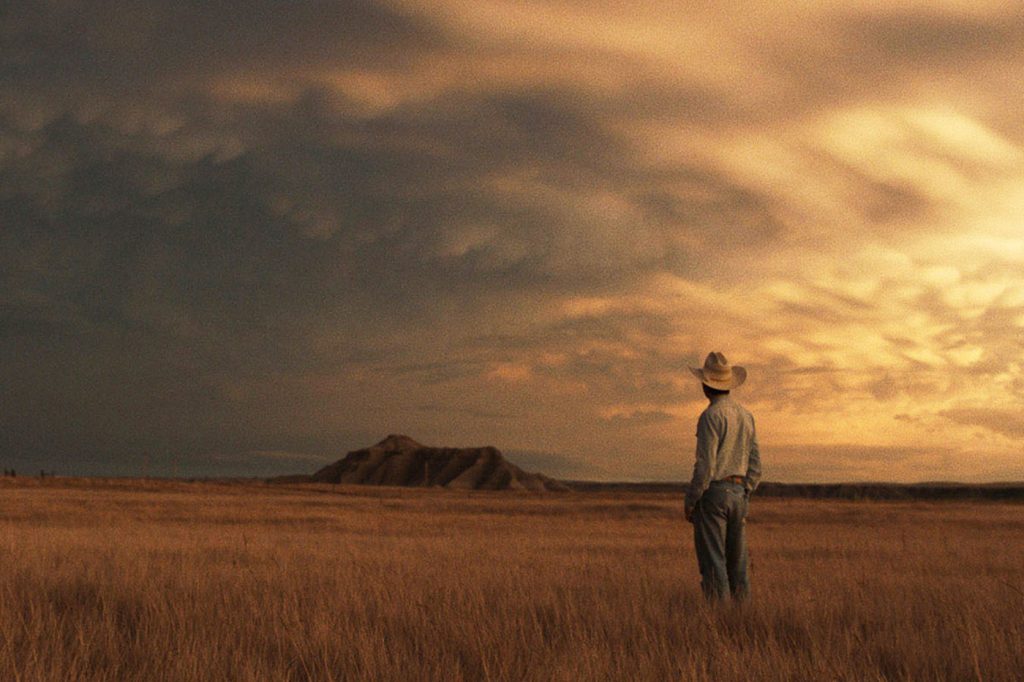
#1. The Rider
Chloe Zhao’s remarkable film is not a documentary but rather a gorgeous, impressionistic film that happens to star real people playing themselves. The story of Lakota rodeo riders and the toll that such a career takes on their bodies and psyches, The Rider is the best movie I’ve ever seen about Native Americans and the West. Anchored by an incredibly open performance by Brady Jandreau and with the best photography of the year, The Rider is profoundly sad and beautiful, a peerless experience, and undoubtedly the best movie of an impressively strong year.
Curious about Neil Fauerso’s Best Movies of 2007? Read the reviews here.
